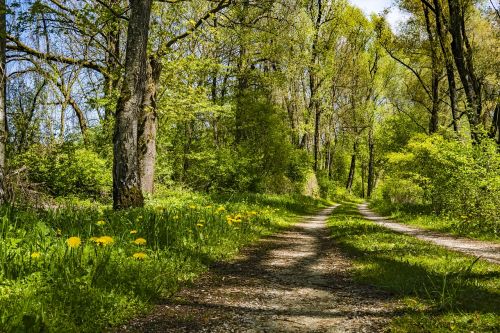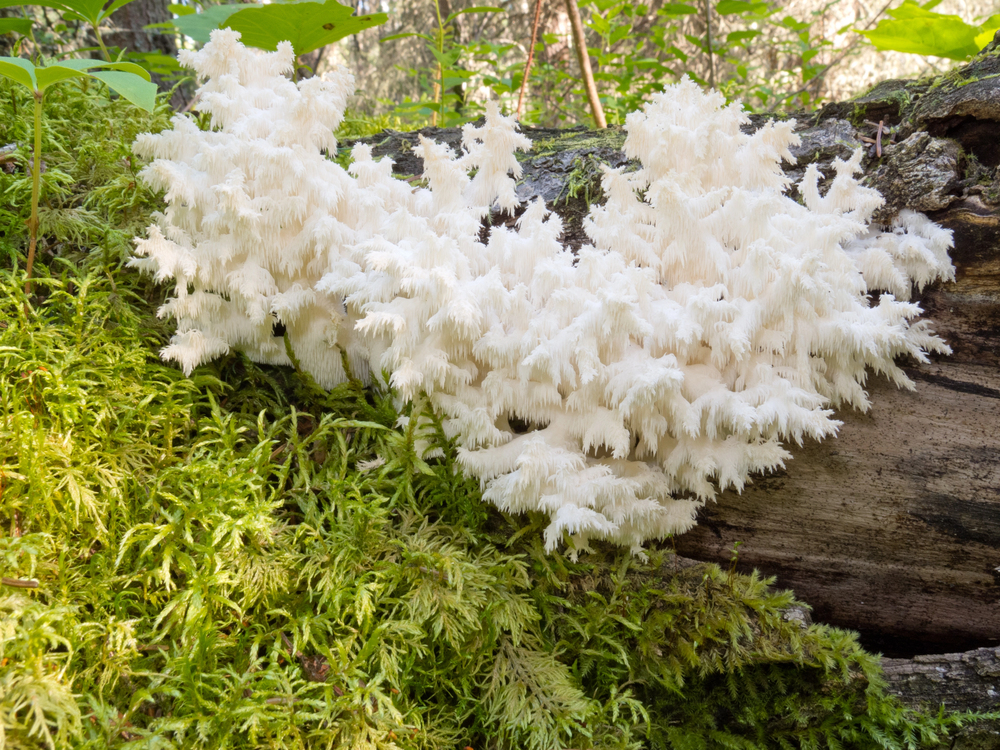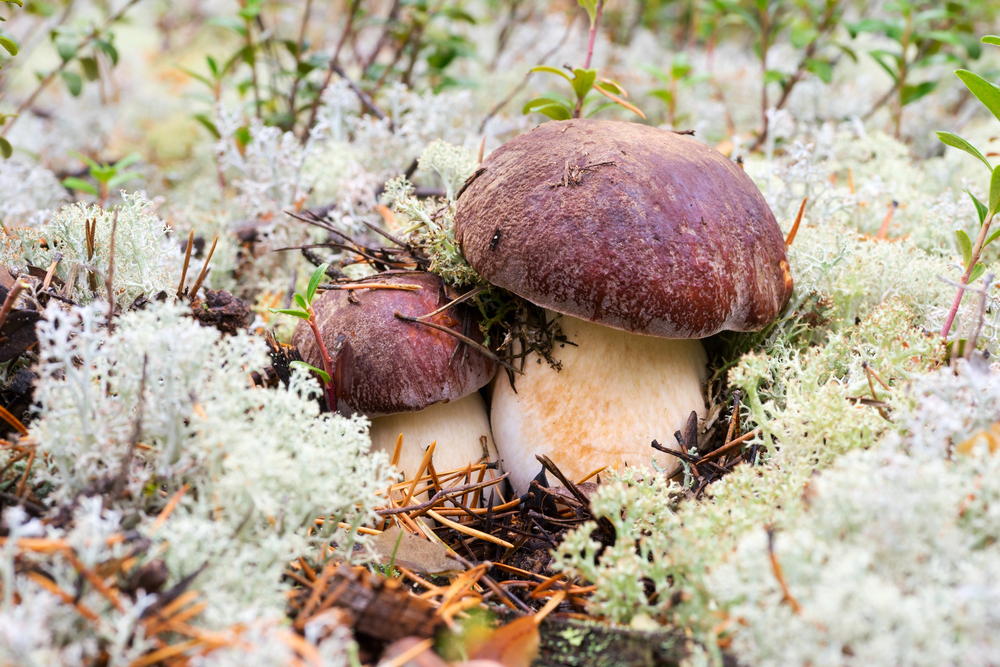Interested in improving your mushroom foraging skills but unsure where to start?
With a variety of mushroom foraging books available, it can be overwhelming to know which ones are best suited for your needs.
Here are top-rated books that cater to both beginners and seasoned foragers.
Best Books for Beginner Foragers
These picks will help kickstart your foraging journey:
| Book Title | Author |
|---|---|
| Mushrooming without Fear | Alexander Schwab |
| The Complete Mushroom Hunter | Gary Lincoff |
| Edible Wild Mushrooms of North America | David W. Fischer |
| National Audubon Society Field Guide to North American Mushrooms | National Audubon Society |
| Foraging for Wild Edible Mushrooms | Patrick Harding |
These books offer easy-to-understand info, stunning visuals, and practical tips for mushroom identification and collection. ‘Mushrooming without Fear’ by Alexander Schwab is beginner-friendly. ‘The Complete Mushroom Hunter’ by Gary Lincoff covers a variety of mushrooms and provides useful guidance. Grab a book, head to the woods, and start your foraging adventure!
Mushrooming without Fear by Alexander Schwab
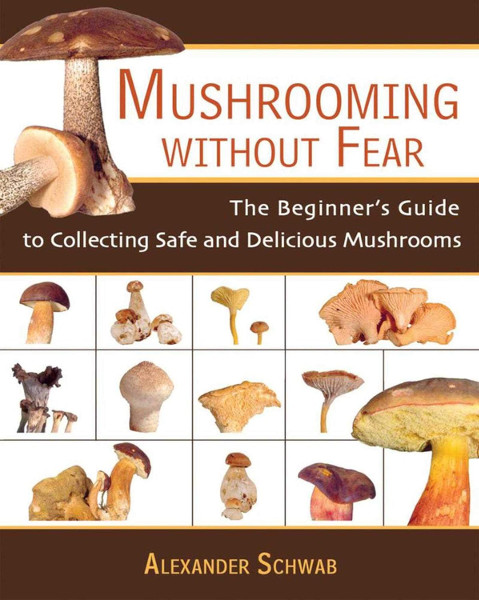
- Skyhorse Mushrooming without Fear: The Beginner’s Guide to Collecting Safe and Delicious Mushrooms
When mushroom foraging, remember these eight rules for a safe and enjoyable experience. Follow these guidelines to ensure a worry-free hunt. Remember the mantra of ‘Never take a mushroom with gills’ and note that ‘If a mushroom smells rotten, it’s rotten.’ By following these simple rules, you can confidently explore the world of wild mushrooms.
You’ll come across delectable mushrooms like cep, red-cracked boletes, and chanterelles. Equipped with detailed photographs and identification checklists, you’ll be able to spot these treasures in the wild. Learn about different mushroom seasons, proper handling techniques, storage methods, and cooking tips and recipes to make the most of your finds.
Embrace the freedom of mushroom foraging with knowledge and caution. With the right information, you can explore nature’s bounties with confidence and excitement.
The Complete Mushroom Hunter by Gary Lincoff
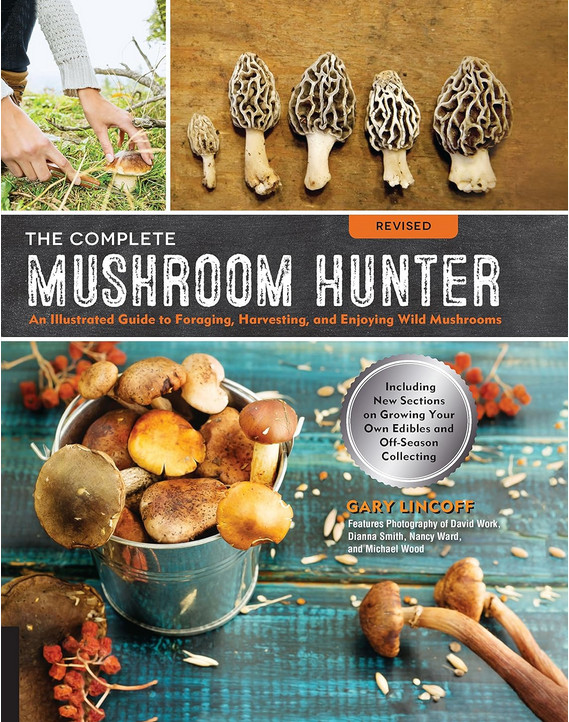
Join mushroom expert Gary Lincoff on an enthralling journey exploring the cultural and culinary history of mushrooms in ‘The Complete Mushroom Hunter.’ Discover the enchanting world of mushroom hunting, from identifying wild mushrooms and ensuring safety to preparing and enjoying these natural treasures. Filled with stunning photographs and engaging field anecdotes, this book will turn you into a mycophile instantly.
Mushrooms are abundant local food sources found in various environments, from woodlands to urban parks. ‘The Complete Mushroom Hunter’ enhances your understanding of the natural world and offers a comprehensive overview of edible mushrooms. Lincoff discusses the history of mushroom hunting, preparing for forays, and enjoying your finds with thirty delicious recipes. The book also includes a guide to poisonous mushrooms, medicinal varieties, and tips on mushroom artwork and cultivation. Whether you’re a beginner or an experienced mycophile, this book is an essential companion for your mushroom adventures.
Edible Wild Mushrooms of North America by David W. Fischer
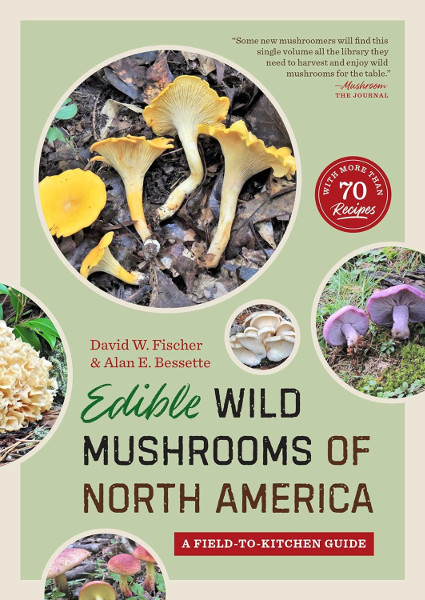
Discover the fascinating world of edible wild mushrooms in North America with ‘Edible Wild Mushrooms of North America’ by David Fischer and Alan Bessette. This field guide is ideal for novice mushroom hunters, featuring information on over 100 tasty mushroom species.
With 70+ savory recipes, you can learn to locate, harvest, store, and cook these delicious fungi. The guide emphasizes accurate identification to ensure safe foraging, with each species described in simple language and accompanied by key identifying features.
Stunning color photographs aid in recognizing mushrooms, while poisonous ‘lookalikes’ are also highlighted to avoid confusion. The authors provide insights on allergic reactions, chemical contaminants, and bacterial risks for a worry-free culinary experience.
National Audubon Society Field Guide to North American Mushrooms
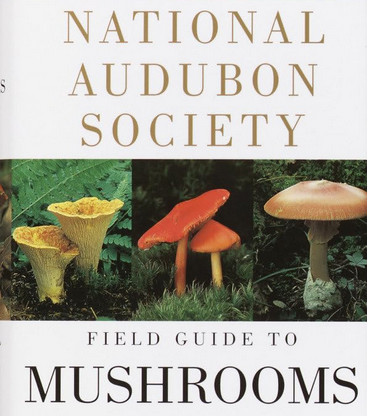
- Random House Audubon Field Guide: Mushrooms by Gary Lincoff – 9780394519920
The National Audubon Society Field Guide to North American Mushrooms is a comprehensive resource for mushroom enthusiasts in North America. It features over 700 full-color identification photographs organized by color and shape, along with detailed descriptions of each species including edibility, season, habitat, range, look-alikes, and more.
This guide also provides information on edible and poisonous species, uses, folklore, and tips on cooking and eating wild mushrooms. With a durable vinyl binding, this guide is perfect for your day pack or home library, enhancing your mushroom hunting experience and deepening your appreciation for the world of fungi.
Edible Wild Mushrooms Foraging in UK & Ireland by Lomasi Ahusaka
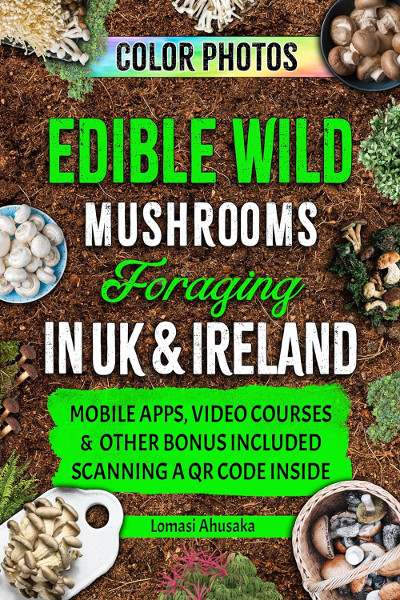
Ready to explore the world of edible wild mushrooms in the UK & Ireland? Enhance your foraging skills with expert guidance and discover a variety of wild mushrooms waiting to be found.
From earthy Porcini mushrooms to delicate Chanterelles, the forests and countryside of these regions hold a treasure trove of edible fungi.
To safely navigate this world, learn from experienced foragers for accurate information on identifying and harvesting these treasures.
With the right knowledge and guidance, enjoy the thrill of hunting for wild mushrooms while respecting nature and ensuring your safety.
Foraging Mushrooms Identification Field Guide of the Northeast by Bleu Sayles
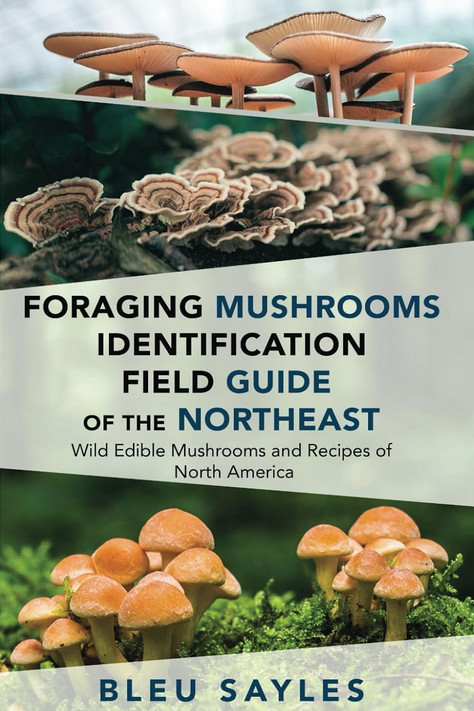
When exploring the diverse fungal ecosystem of the Northeast, the “Foraging Mushrooms Identification Field Guide” by Bleu Sayles is an invaluable resource for foragers at any skill level.
This comprehensive guide presents insights into the region’s most delectable mushrooms, such as giant puffballs, chanterelles, and honey mushrooms. Readers will find a concise history of foraging and mycology to deepen their connection to this passion.
Essential tools for successful foraging trips are outlined, along with vital safety advice to ensure peace of mind. Detailed identification guides, paired with striking photographs, support confident foraging, while specific gathering instructions and easy recipes enhance the culinary experience. Sayles also provides comparisons to poisonous look-alikes, empowering foragers to enjoy their harvest safely.
How to Identify and Gather Wild Mushrooms and Other Fungi
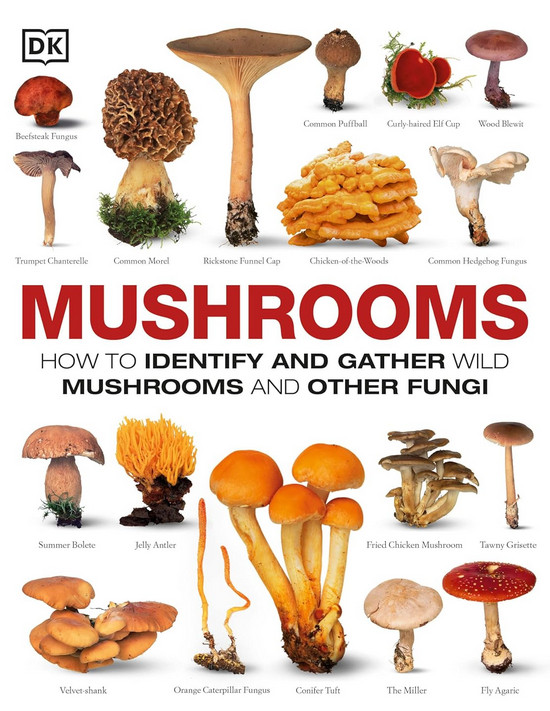
Identifying and gathering wild mushrooms and other fungi requires a keen eye and methodical approach. To navigate this fascinating pursuit, consider the following steps:
- Study Key Features: Familiarize yourself with the anatomical sections of fungi, including caps, gills, and spores. Understanding these elements is essential for accurate identification.
- Utilize Visual Guides: Use illustrated guides that showcase over 450 species, providing clear photographs and descriptions that aid in easy identification in the field.
- Learn About Habitats: Recognize the specific environments where different fungi thrive. This knowledge will help you locate edible varieties while avoiding poisonous ones.
How to Forage for Mushrooms without Dying by Frank Hyman
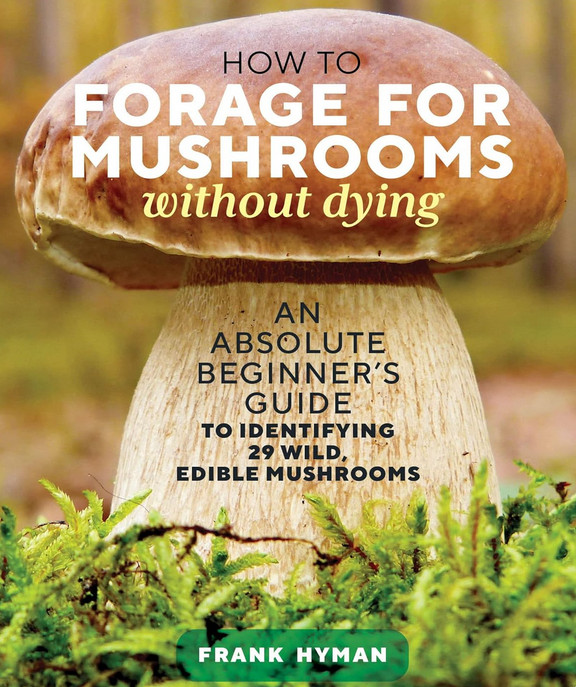
Frank Hyman’s book, “How to Forage for Mushrooms without Dying,” serves as an invaluable guide for those eager to explore the world of edible fungi. Hyman simplifies the process by focusing on just 29 common edible mushrooms, offering essential identification tips in a memorable, engaging manner. His practical advice, such as the hollow stem test for morels—”if it’s hollow, you can swallow“—empowers readers to forage confidently. With Hyman’s expert guidance, one can embrace the freedom of foraging, equipped with the knowledge to safely enjoy the bounties of nature while steering clear of dangerous pitfalls.
Wild Mushrooms: A Cookbook and Foraging Guide
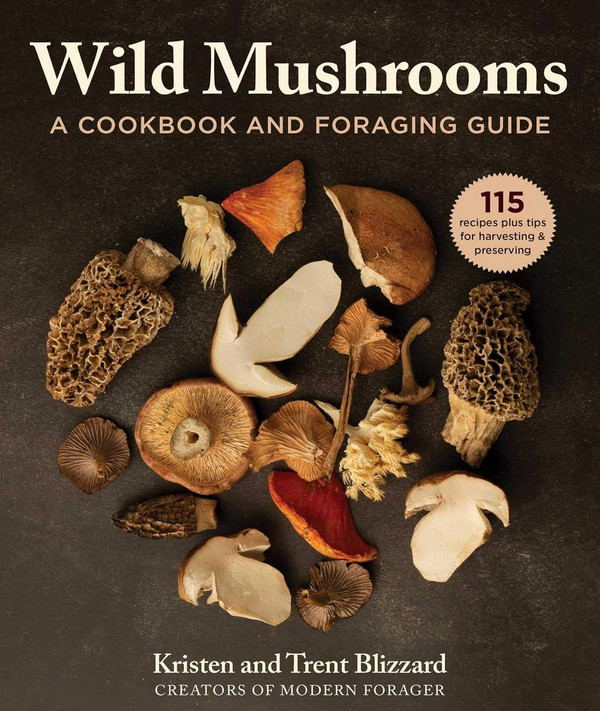
Discover the culinary possibilities of wild mushrooms with “Wild Mushrooms: A Cookbook and Foraging Guide” by Kristen and Trent Blizzard. This comprehensive resource, enriched by insights from over 20 skilled foragers, provides practical advice to help you make the most of your foraged finds.
Key features of the book include:
- Expert Techniques: Master effective methods for locating, cleaning, and preserving your wild mushroom treasures.
- Flavor Profiles: Explore distinct mushroom sections and their culinary uses, expanding your cooking skills.
- Diverse Recipes: With 115 recipes organized by species, you can craft dishes that highlight the unique flavors of your harvest.
Embrace the art of foraging and enjoy the connection to nature through your culinary creations.
Beginner’s Guide to Safely Foraging for Wild Mushrooms by Karen Stephenson
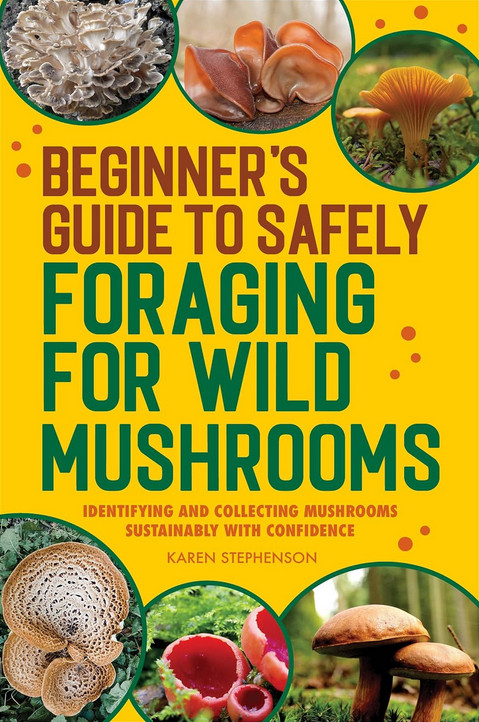
Karen Stephenson’s “Beginner’s Guide to Safely Foraging for Wild Mushrooms” serves as an essential resource for newcomers eager to explore this liberating pursuit. The guide includes expert tips on equipment, effective foraging techniques, and sustainable harvesting practices.
A mini-mycology lesson provides readers with fundamental knowledge about mushroom types and anatomy, while clear visuals help identify thirty common North American mushrooms and five toxic varieties to avoid. Additionally, a seasonal and regional mushroom chart informs foragers about which species to seek throughout the year, ensuring a confident and safe foraging journey.
Fearless Foraging Guide to Mushrooms
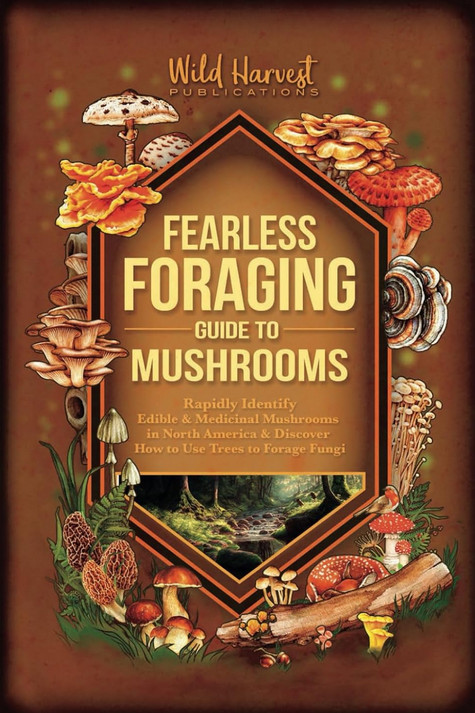
The “Fearless Foraging Guide to Mushrooms” is an essential resource for both novice and experienced foragers, enabling readers to confidently identify, harvest, and use a variety of beneficial mushrooms across North America. This guide enhances the foraging experience with:
- 40+ Edible and Medicinal Mushrooms: Discover numerous species that nourish and heal.
- Identification Tips: Clear descriptions and hints ensure accurate identification, even for beginners.
- Digital Field Guide Access: Gain complimentary access to high-resolution photos and descriptions to enhance your foraging journey.
Focusing on the relationship between mushrooms and trees, this guide provides important insights to help foragers avoid deadly lookalikes, promoting exploration of the wild with assurance and freedom.
Foraging Mushrooms of the Rocky Mountains
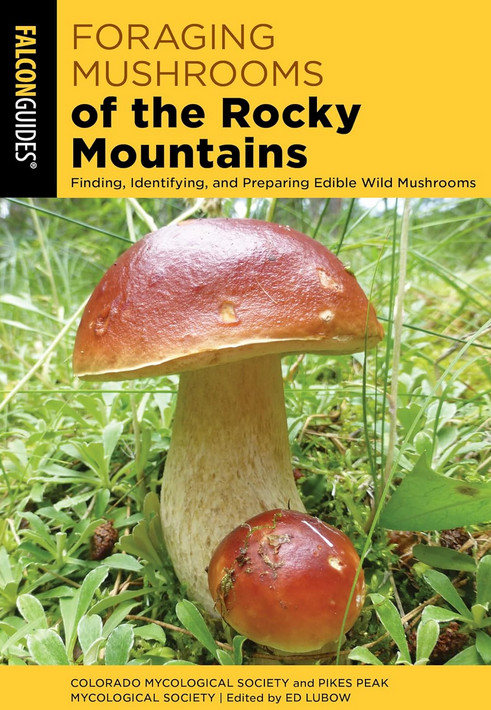
Foragers looking to enhance their culinary experiences will find “Foraging Mushrooms of the Rocky Mountains” an essential guide. Authored by the Colorado Mycological Society and the Pikes Peak Mycological Society, this comprehensive resource serves as both a practical field reference and an engaging read. It provides detailed descriptions of edible mushrooms found throughout the Rocky Mountain region, including British Columbia. Whether you’re on a challenging backpacking trip or a casual walk in the woods, this book offers valuable tips for locating, preparing, and utilizing mushrooms. Enhanced by a glossary of botanical terms and vibrant color photographs, it promises to elevate your foraging experience and inspire new culinary creations for your dinner table.





